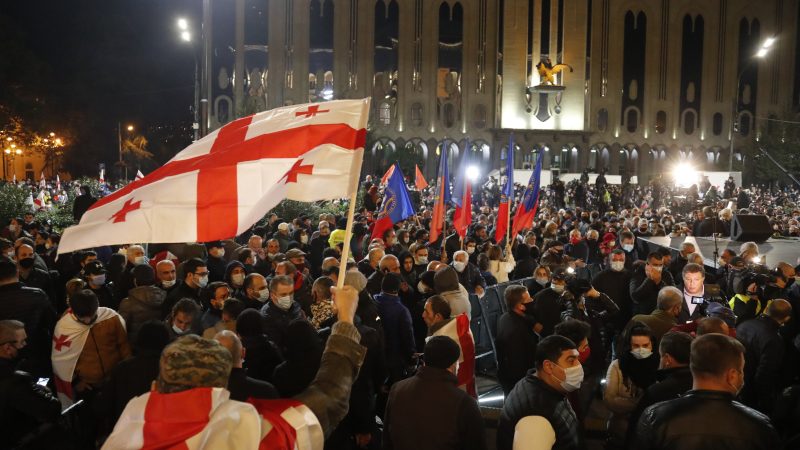In Georgia, citizens take to the streets night after night to protest against a controversial bill that threatens the country’s European aspirations and tilts it towards Russia.
Protests Against “Foreign Agent” Law
Thousands gather outside the parliament in Tbilisi, facing off against police brutality, tear gas, and water cannons, to oppose a proposed “foreign agent” law. The bill, similar to a measure enacted by Russian President Vladimir Putin, would compel organizations receiving over 20% of their funding from abroad to register as “foreign agents” or face hefty fines.
Resistance and Resilience
Among the protesters is Tsotne Jafaridze, who fears that failure to resist the bill will lead to Georgia waking up under Russian influence. Critics argue that the true targets of the law are independent media and civil society organizations, aimed at consolidating power ahead of upcoming elections.
Escalating Police Brutality
As the protests intensify, so does the crackdown by law enforcement. Opposition leader Levan Khabeishvili suffered brutal beatings at the hands of the police, underscoring the growing authoritarianism in the government’s response. Tear gas, water cannons, and unidentified officers add to the volatility of the situation.
Historical Context and Parallels
Georgians harbor deep-seated animosity towards Russia, stemming from past conflicts and occupations. The ruling Georgian Dream party, however, has faced accusations of pro-Russian sympathies, further fueling public outrage.
International Criticism and Response
The United States has voiced concern over Georgia’s authoritarian turn, with the State Department warning against the erosion of democratic values. Prime Minister Irakli Kobakhidze’s denunciation of liberal protesters has raised eyebrows, with critics accusing the government of aligning with anti-liberal forces.
Uncertain Future
Despite government attempts to quell dissent, protesters remain resolute, vowing to continue until the bill is withdrawn. With the specter of revolution looming, Georgia finds itself at a critical juncture, torn between European aspirations and Russian influence.















































